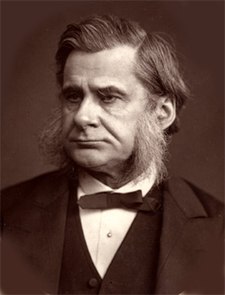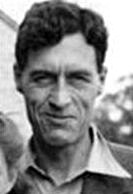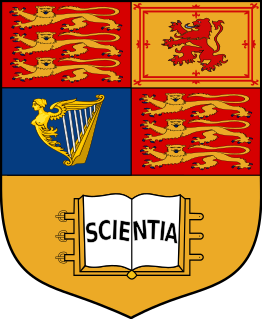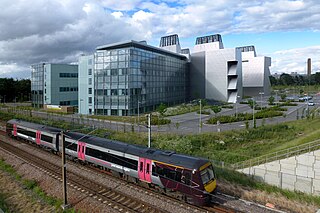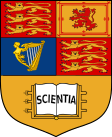Alumni
Scientists and engineers
- Bissan Al-Lazikani (data scientist)
- Sir Roy M. Anderson (epidemiology – mathematically modelled the spread of Creutzfeldt–Jakob disease and AIDS.)
- Dame Mary Archer (British scientist specialising in solar power conversion)
- Eric Ashby, Baron Ashby (botanist)
- Ian Bayley (computer scientist)
- Sir Henry De la Beche, founder of the British Geological Survey
- William Thomas Blanford (geologist)
- Kenneth Binmore (economist)
- Moses Blackman (crystallographer)
- George C. Clerk (Ghanaian botanist and plant pathologist)
- Sir Charles Vernon Boys (scientist)
- Donal Bradley (researcher in plastic electronics)
- Nessa Carey, virologist and author)
- Piers Corbyn (meteorologist)
- Donald Watts Davies (computer scientist)
- Herbert Dingle (English astronomer, best known for his claimed disproof of the theory of special relativity)
- Patrick Dixon (futurist, physician)
- Sir Lewis Leigh Fermor (geologist, first president of Indian National Science Academy)
- Amanda Fisher (biologist)
- Alfred Fowler (astronomer)
- Marc Garneau (first Canadian in space, Chancellor of Carleton University, Liberal Member of Parliament)
- John F. Griffiths (climatologist)
- Sir Thomas Henry Holland (geologist)
- Arthur Holmes (geologist)
- John Wesley Judd (geologist)
- David Latchman (geneticist)
- Kaveh Madani (environmental scientist, activist and former politician)
- Johnjoe McFadden (molecular geneticist and writer)
- C. Lloyd Morgan (psychologist)
- Naomi Oreskes (historian of science)
- Helen Porter (botanist)
- David E. Potter (founder and Chairman of Psion, Chairman of Symbian)
- John G. Ramsay (structural geologist)
- Murray Shanahan (computer scientist)
- Sir Alec Skempton (founding father of soil mechanics)
- Elsayed Elsayed Wagih (Egyptian virologist and biotechnologist)
- Leslie Valiant (theoretical computer scientist, best known for PAC Learning)
Chemists

- Henry Edward Armstrong (chemist)
- Richard Barrer (chemistry – developer of zeolites)
- Anthony Gerard Martin Barrett (FRS, FMedSci, Chemistry)
- Sir Derek Harold Richard Barton (Nobel laureate, chemistry)
- Dewan Singh Bhakuni Shanti Swarup Bhatnagar laureate
- Sir William Crookes (chemist and physicist) [1]
- Andrew deMello (chemist)
- Carl Djerassi (chemist; first oral contraceptive pill progestin norethisterone)
- George Finch
- Malcolm Green
- Christopher Kelk Ingold (of the Cahn-Ingold-Prelog rules) [2]
- Adinath Lahiri (Padma Bhushan and Padma Shri awardee)
- Sir Patrick Linstead (discoverer of phthalocyanine dyes)
- Sir William Henry Perkin (discoverer of aniline dyes, studied at the Royal College of Chemistry) [3]
- William Henry Perkin, Jr. (organic chemist, son of Sir William Henry Perkin, studied at the Royal College of Science)
- Juda Hirsch Quastel (chemist)
- Henry Rzepa (computational organic chemist)
- Jeremy Sanders (chemist)
- Martin Schroder (chemist)
- Sir Richard Sykes (biochemist, Chairman of GlaxoSmithKline)
- Sir Henry Tizard (Chemist and inventor)
- Sir Geoffrey Wilkinson (Nobel laureate, chemistry)
Engineers
- Asad Abidi (electrical engineer) – former dean of Lahore University of Management Sciences, member of the National Academy of Engineering
- Nicholas Ambraseys (civil engineer) – Founder of Engineering Seismology at Imperial College London
- Eric Ash (engineer)
- Ayodele Awojobi (first African awarded the D.Sc degree in mechanical engineering; main field: vibration)
- Cecil Balmond (civil engineer)
- Baron Richard Beeching (engineer)
- Alan Blumlein (electronic engineer)
- Wilfred Corrigan (American engineer and entrepreneur, founder of LSI Logic Corp.)
- Peter A. Cundall (rock engineer – Discrete Element Method)
- George Mercer Dawson (surveyor)
- James H. Ellis (engineer, conceived public-key cryptography)
- Sir Hugh Ford (engineer)
- Peter Gregson (research engineer, Vice-Chancellor of the Queen's University of Belfast)
- Dame Judith Hackitt (engineer and civil servant) [4]
- Sir Stanley Hooker (mechanical engineer)
- C.L.V. Jayathilake (engineer)
- Viktor Jensen (engineer)
- Frederick William Lanchester (aeronautic engineer)
- Meir Manny Lehman (software engineering)
- Tshilidzi Marwala (engineer)
- Sanjoy K. Mitter (electrical engineer)
- Dudley Maurice Newitt, chemical engineer, scientific director of the Special Operations Executive; [5]
- Alec Reeves (engineer, invented pulse-code modulation)
- Peter Rice (civil engineer)
- Donald Van Norman Roberts (civil engineer)
- Roger W.H. Sargent (chemical engineer)
- Luís Simões da Silva (civil engineer)
- Josef Singer (1923–2009) (aeronautical engineer; Israeli President of Technion – Israel Institute of Technology
- Nikolas Tombazis (Mclaren F1 and Scuderia Ferrari chief aerodynamicist)
- Kevin Warwick (engineer)
- Andrew J. Whittle (head of Civil Engineering at MIT)
- Richard Williams, Vice-Chancellor of Heriot-Watt University
- Christopher R. Wronski (electrical engineer)
- Shao Xianghua (metallurgical engineer)
- Olgierd Zienkiewicz (civil engineer – Finite Element Method)
Mathematicians and statisticians
- Daniel Afedzi Akyeampong (mathematician)
- Francis Allotey (mathematician)
- David Balding (mathematical statistician)
- Vincent Blondel (mathematician)
- Tony Brooker (mathematician and computer scientist)
- William Reginald Dean (applied mathematician and fluid dynamicist)
- E. W. Hobson (mathematician)
- Bill Parry (mathematician)
- L H C Tippett (statistician)
- Stuart Turnbull (financial mathematician)
Medicine


- Dame Sally Davis (Chief Medical Officer) [6]
- Sir Harold Ellis (surgeon)
- Sir Joseph Fayrer (physician noted for his writings on medicine in India)
- Marc Feldmann (expert on rheumatology)
- Sir Alexander Fleming (Nobel Laureate, Physiology and Medicine)
- Sir Frederick Hopkins (Nobel Laureate, Physiology and Medicine)
- Dame Rosalind Hurley (medical microbiologist, researcher, and ethicist)
- Sir Andrew Huxley (Nobel Laureate, Physiology and Medicine)
- Sir Bruce Keogh (medical director of the National Health Service)
- David Livingstone (congregationalist pioneer medical missionary in South Africa–Charing Cross Hospital)
- Norman Morris (Obstetrician and healthcare reformer)
- Albert Neuberger (chemical pathologist)
- William Kitchen Parker (physician and zoologist)
- Sir Rodney Robert Porter (Nobel Laureate, Physiology and Medicine)
- Ann Redgrave (orthopaedic surgery)
- Bernard Spilsbury (pathologist and one of the pioneers of modern forensic medicine)
- Joseph Toynbee (otologist)
- Augustus Desiré Waller (the invention of the electrocardiogram (ECG))
- Almroth Wright (advanced vaccination through the use of autogenous vaccines)
- Sir Magdi Yacoub (expert on live lobe lung transplant)
- Andrew Wakefield (discredited anti-vaccine doctor/activist)
Physicists

- Anthony R. Barringer (geophysicist and inventor)
- Fernando Brandao (physicist)
- Lesley Cohen (physicist)
- Andrew Crumey (physicist)
- Michael Duff (string theorist)
- Sir John Ambrose Fleming (physicist) [7]
- Piers Forster (climatologist)
- James R. Graham (astrophysicist)
- Joanna Haigh, professor of atmospheric physics
- Suzanne Imber (astrophysicist)
- Christopher Isham (physicist)
- Narinder Singh Kapany (physicist – optical fibres)
- Nicholas Kemmer (physicist)
- K. Kunaratnam (physicist)
- Norman Lockyer (discoverer of helium and founder of Nature )
- Yuval Ne'eman (1925–2006) (Israeli physicist, politician, and President of Tel Aviv University)
- T. E. Nevin, Irish physicist
- William George Penney (physicist who worked on the Manhattan Project)
- Nicholas J. Phillips (physicist)
- Martin Bodo Plenio (physicist)
- Patricia Rankin (physicist and Chair of the Department of Physics at Arizona State University
- Wolfgang Rindler (physicist and textbook author who introduced term 'Event Horizon')
- Christopher Sachrajda (physicist, Fellow of the Royal Society (FRS))
- Roy Sambles (President of the Institute of Physics)
- Le Jeu Sham (physicist)
- David Southwood (former President of the Royal Astronomical Society)
- Ray Streater (physicist)
- Vlatko Vedral (physicist)
- Sir Tejinder Virdee, experimental particle physicist; [8]
- Sir Gilbert Walker (physicist)
Politicians


- Adam Afriyie (MP For Windsor)
- Sir James Allen (Minister of Foreign Affairs, New Zealand)
- Hussain al-Shahristani (Iraq's Minister for Higher Education)
- Thomas Anthony Brake (British Liberal Democrat Member of Parliament (MP) for Carshalton and Wallington)
- Matthew Carrington (former Conservative Member of Parliament for Fulham, 1987–1997
- Frederic Creswell (mining engineer and Minister of Defense in South Africa)
- Edmund Daukoru (Minister of Energy for Nigeria and former OPEC President (2006))
- Les Ebdon, Director of Fair Access to Higher Education
- Rajiv Gandhi (former Prime Minister of India) [9]
- Adam Holloway (journalist and politician)
- Branislav Ivkovic (politician)
- Abubakarr Jalloh (Minister for Natural Resources, Sierra Leone)
- Sir Adrian Johns (former Governor of Gibraltar and former Second Sea Lord)
- Chris Kelly (former MP for Dudley South)
- Phillip Lee (MP For Bracknell)
- Rilwan Lukman (Petroleum Resources Minister of Nigeria and former Secretary General OPEC)
- Kaveh Madani (Vice President of the United Nations Environmental Assembly Bureau and Deputy Vice President of Iran)
- Ken Michael (Governor of Western Australia)
- Layla Moran (MP for Oxford West and Abingdon)
- Chi Onwurah (MP for Newcastle upon Tyne Central)
- Trevor Phillips (journalist and politician)
- J Y Pillay (civil servant)
- Joan Ruddock (politician)
- Sydney Russell-Wells (British MP)
- Guy Saint-Pierre (politician)
- Christos Staikouras (politician and economist)
- Richard Thomas Taylor (Independent Member of Parliament for Wyre Forest)
- Teo Chee Hean (Defence Minister of Singapore and former Chief of Navy)
- Desmond Stanley Turner (British Labour Party politician who was the Member of Parliament (MP) for Brighton Kemptown)
- Sir Julius Vogel (former Prime Minister of New Zealand) [10]
Business people

- Kaveh Alamouti (investment banker)
- Alfred Beit (gold and diamond magnate)
- Otto Beit (financier)
- Stan Bharti (founder of Forbes & Manhattan)
- Michael Birch (Founder of Bebo)
- Chew Choon Seng (CEO of Singapore Airlines)
- Hamdan Mohamad (Malaysia's water baron, CEO & President of Ranhill Berhad)
- Iain Conn (Group Managing Director of BP)
- Michael Cowpland (founder of Corel)
- Keith Duckworth (Founder of Cosworth Engineering)
- Colin Dyer (CEO of Jones Lang LaSalle)
- Alan Howard (co-founder of Brevan Howard)
- Koh Boon Hwee (Chairman of DBS Bank, Singapore)
- Anil Kumar (born 1958), management consultant who pled guilty to insider trading
- Martin Lamb, Chief Executive of IMI plc
- Danny Lui (founder of Lenovo)
- Mehraj Mattoo (Global Head, COMAS, Commerzbank)
- Cyrus Pallonji Mistry (Chairman of Tata Group) [11]
- Charlie Muirhead (Entrepreneur, founder of Rightster)
- Ronald Oxburgh (non-executive chairman of Royal Dutch Shell PLC)
- Leo Quinn (group chief executive of Balfour Beatty plc)
- Ian Read (CEO of Pfizer)
- Andrew Rickman OBE (technology billionaire)
- Sir Ralph Robins (Former CEO of Rolls-Royce) [12]
- Harold Roxbee Cox (aircraft engineer)
- Gary Tanaka (founder of Amerindo Investment Advisors)
- Winston Wong (businessman)
Others



- Anjana Ahuja (journalist)
- Kit Armstrong (pianist and composer)
- Louis Attrill (Sydney Olympics gold medallist, rowing)
- Sir Roger Bannister (athlete) [13]
- Laurent Bonomo (visiting student)
- Will Burrard-Lucas (photographer)
- David Cain (composer)
- I. C. Chacko (writer)
- Henry Cole (civil servant)
- Andrew Crumey (novelist)
- Declan Curry (presenter on BBC News 24)
- Simon Dennis (Sydney Olympics gold medallist, rowing)
- Bill Durodie (academic, risk analyst)
- Andy Fanshawe (mountaineer)
- Gabriel Ferez (visiting student)
- Pallab Ghosh (BBC Science Correspondent)
- Adrian Greenwood (historian and art dealer)
- Jessica Hsuan (Chinese actress)
- David Irving (author)
- Adam Kay (of the comedy duo Amateur Transplants)
- Nalin Kulatilaka (economist)
- Aarif Lee (Chinese actor and singer)
- Tan Yock Lin (professor of law and author)
- Brian May (astrophysicist, more commonly known as a member of the rock band Queen) [14]
- Anthony R. Michaelis (science journalist and publisher)
- Andreas Mogensen (First Danish astronaut)
- Ghanem Nuseibeh (Founder of Cornerstone Global Associates)
- Murad Osmann (photographer)
- Paul Rogers (Professor of Peace)
- Ted Simon (journalist)
- Simon Singh (popular science author)
- Daniel V. Snaith (IDM artist, records under the name Caribou)
- Richard Southwood (Vice-Chancellor, University of Oxford)
- George Reginald Starr (Special Operations Executive officer)
- Emma Townshend (Academic, musician and columnist)
- Kevin Walton (military, awarded the George Cross in 1946)
- Lancelot Ware (biochemist, barrister and co-founder of Mensa International)
- H. G. Wells (science fiction author) [15]
- Jane Yardley (author)
- Raymond Yiu (composer)
